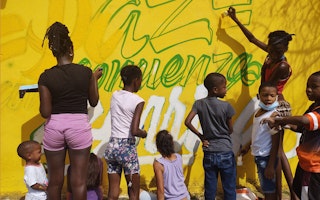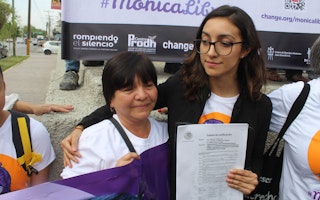The expansion of suffrage to all sectors of the population is one of the United States' most important political triumphs. Once the privilege of wealthy white men, the vote is now a basic right held as well by the poor and working classes, racial minorities, women, and young adults. Today, all mentally competent adults have the right to vote with only one exception: convicted criminal offenders. In forty-six states and the District of Columbia, criminal disenfranchisement laws deny the vote to all convicted adults in prison. Thirty-two states also disenfranchise felons on parole; twenty-nine disenfranchise those on probation. And, due to laws that may be unique in the world, in fourteen states even ex-offenders who have fully served their sentences remain barred for life from voting.
While felony disenfranchisement laws should be of concern in any democracy, the scale of their impact in the United States is unparalleled: an estimated 3.9 million U.S. citizens are disenfranchised, including over one million who have fully completed their sentences. That so many people are disenfranchised is an unintended consequence of harsh criminal justice policies that have increased the number of people sent to prison and the length of their sentences, despite a falling crime rate.
The racial impact of disenfranchisement laws is particularly egregious. Thirteen percent of African American men—1.4 million—are disenfranchised, representing just over one-third (36 percent) of the total disenfranchised population. In two states, our data show that almost one in three black men is disenfranchised. In eight states, one in four black men is disenfranchised. If current trends continue, the rate of disenfranchisement for black men could reach 40 percent in the states that disenfranchise ex-offenders.
Read more
Homicide Reduction
Q&A: How One Colombian City Is Tackling Violent Crime

Palmira, Colombia, is one of the most violent cities in the world. But a prevention program focusing on youth has reduced crime significantly—and earned it an international peace prize. The city’s mayor on what’s working.
In Remembrance
Lani Guinier’s Overlooked Education Legacy

The late Lani Guinier thought deeply about the intersection between education and criminal justice. Her leadership at Open Society helped pave the way to colleges across the country offering higher education to the incarcerated.
WOMEN'S RIGHTS
Challenging Mexico’s Abusive Preventative Detention System

Mónica Esparza’s case is one of the most notorious cases of extreme gender violence carried out by Mexican authorities. What her story teaches about how to combat the country’s scourge of gender-based violence.
